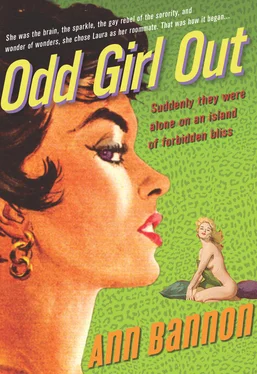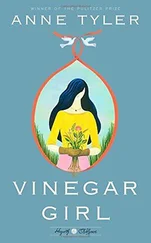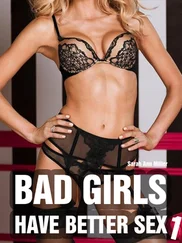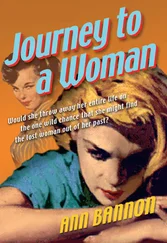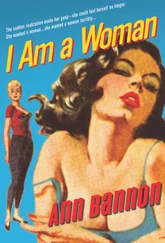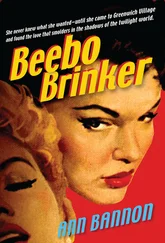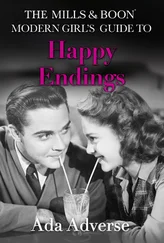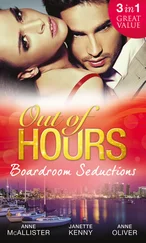And this had its benefits. Escaping public scrutiny as we did, we had a chance to talk about things that other writers usually handled—if they approached them at all—with a pair of tongs. We could take chances, we could be subversive, we could look at all the shameful, seductive, irresistible, delightful appeal of “the sex that dared not speak its name.” In a way, we were daredevils, protected by our unknown, uncredited, unsung noms de plume .
It took guts just to buy those books and confront the smirk on the face of the clerk at the cash register. People tried to disguise them in a pile of sundries they probably didn’t even need but bought anyway to distract attention from those eye-popping covers. I know—I was buying them, too. But once they had purchased them, they took the books home, read and re-read them, cherished them, and then hid them behind the fridge, in shoe boxes in their closets, under mattresses. It was a life-changing event if a spouse, a parent, or even a child found the books and challenged the reader. Nobody wanted to be shoved unceremoniously out of the closet, ready or not, particularly in that unforgiving time. But it did happen to many readers back then.
In Jaye Zimet’s book, Strange Sisters: the Art of Lesbian Pulp Fiction, 1949-1969 (Penguin, 1999), for which I wrote the foreword, the colorful cover art for the lesbian pulps is given a showcase. Looking it over, I’m moved to wonder: How strange were our sisters? Even in the “exotic” and distant 1950s? Not very, truth to tell. Wonderful, but not strange, or at least, strange only on the covers of the books. When I was writing about them, I thought they were brave, passionate, gorgeous, and very, very cool. But not strange. And yet that word figures in dozens of the paperback book titles of the period as a sort of code for lesbian content, recognized by male and female readers alike.
Webster’s defines “pulp” as “tawdry or sensational writing.” In other words, sleaze. It never entered my head that I was writing sleaze; I was writing romantic stories of women in love. But it certainly entered the heads of the editors and publishers of the original pulps, and in a far from negative sense. Their job was to promote, market, and sell the books, and sleaze had a huge appeal. Furthermore, being men—most of them, anyway—they knew that the cover tease, showing a couple of desirable women who presumably would have interesting sex in the story, would lure a male audience and probably double their profits. Women readers could be relied on to read the covers iconically; men read them literally. Both would buy the books.
So the paperback publishers made money in what was basically the trashy trailer park of literature by lavishing curvy girls, lacy underwear, and heavy suggestions of sin and excess on their covers. That this frequently had little or no relationship to the actual characters and events in the stories was seldom a concern, any more than were the requests of the authors themselves with regard to cover illustration.
Neither were we consulted on the titles. I can remember tearing open the brown paper packages in which complimentary copies of my novels would arrive, and bracing myself for the shock of the cover art and, on occasion, even the title. The blurbs were lubriciously inventive: “The Savage Novel of a Lesbian on the Loose.” “They came to college sweet, pretty, and unsuspecting. But the house mother was strangely corrupt …” “Mary lacerated the flesh of a hundred girls with her searing caresses.” “The world of the third sex … that land of strange loves and rapacious passions.” “It was hard to figure out who was male and who was female … sometimes they were interchangeable.” “She found herself climbing down a ladder of flesh into a cesspool of Lesbian depravity.” With blurbs like these, who needed the critics’ praise to sell books? They flew off the shelves. And still nobody in the wider world took notice except the readers themselves.
Then the letters started pouring in. Those from the men were often propositions; those from the women were cries of the heart. The female readers wrote from little towns all over the country. Such was their isolation that many of them were grateful to me for reassuring them that they were not totally alone in the world. They wanted me to tell their stories, they wanted me to give them advice, and they wanted to meet me. They were sweet, tentative, grateful, scared, and even needier than I, if that’s possible, of education and support.
I wish I had those letters still—they were lost in one of many moves over the years. They would astonish the far more knowledgeable readership of women today in their ingenuousness, their yearning, their sense of exile, but with it all, their good humor, their sheer guts and perseverance. These women lived in a world where they thought themselves to be painfully unique. The bottom line was, they imagined themselves doomed to solitude in their yearnings for the rest of their lives and sadly, deservedly so, since they had no positive role models to contradict such self-prejudice. I admired and even loved them, although I only ever met one of them, through her personal determination to make it happen. I often think of them and hope their lives turned out better than they could then have known or dared to hope.
But these letters overwhelmed me. What to tell them? I was being appealed to for help as if I were a lesbian Ann Landers. Little did they know it was a case of the blind leading the blind. What could I, in my naiveté, possibly say that would help them through their sexual exile, give them warmth and hope? The only gift I could give back to these readers was another story.
In my visits to Greenwich Village, I had already learned to recognize the butch/femme dichotomy so influential at the time, and I wanted to write a book about a big, handsome, exasperating, reckless, bright, funny, irresistible butch. She would do what I could not. She would be what I could not. I already knew her in the theater of my mind, and I even knew her name: Beebo Brinker. I stole the “Beebo” from a childhood friend who couldn’t pronounce her given name of Beverly. The “Brinker” was my own inspiration. She was never modeled on a real woman, although several were influential in various ways. Instead she sprang like Minerva from my brow, propelled to life by the twin engines of fantasy and need.
When Beebo was at her buccaneer best, I was infatuated with her myself. When she was at her destructive worst, I was using her as a dumping ground for my own frustrations. She was tough and could take it, and made my life better and my spirit stronger by shouldering the troubles I couldn’t resolve. But it resulted in giving her a dark side I now wish I could soften.
I gave at least some of the stories a happy ending, sort of. Nobody had to be shot or jump in front of a train for the sin of loving another woman. Bad things did happen that reflected the arrogant ignorance of the authorities, the contempt of conventional society, and the occasional desperation of the women of the times; modern readers may feel impatient with some of this now, but it was part of life back then. But still there was humor and there was love, in at least as good measure, and I am most proud of having captured some of that temper of the times as well.
I had no idea I was being brave or daring when I started writing, so perhaps it doesn’t count. But after Odd Girl Out was published and I realized I was, I kept on writing anyway, so perhaps it does. One of the hardest things I ever had to do was hand a copy of the first edition of Odd Girl Out to my mother to read. It’s the one that shows the author’s name as “A. Bannon.” I was too shy then even to let my first name be printed on the cover. My mother was a strikingly pretty and spirited lady, whose beauty and willfulness had gotten her into three marriages and many scrapes. But for all that, she was raised by my little Victorian grandmother, who steeped her in the manners required of nice girls. It was part of the code that a lady simply sailed past unpleasantness wherever possible, taking no note of it.
Читать дальше
